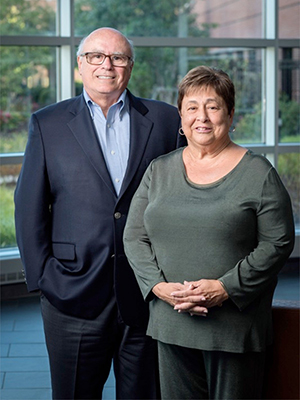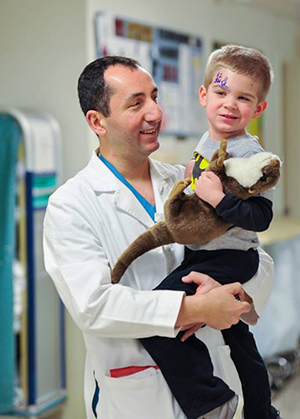On May 29, 2020, Richard T. Clark walked onto the 8th floor intensive care unit of the Jefferson Hospital for Neuroscience and announced he was there for brain surgery. The nurse was stunned, telling him: “People don’t usually walk into this unit!”
He quickly countered: “The key isn’t walking into the unit—it’s walking out!”
And while Clark didn’t walk out of the unit—the staff insisted on a wheelchair—he is walking today. And talking. And working. And playing with his three grandchildren. And spending quality time with his wife of 50 years, Angela. And crediting world-renowned neurosurgeon Pascal Jabbour, MD, with saving his life.
Clark’s journey back from a head injury to health began in early May when he took a tumble. The retired chairman, CEO, and president of Merck & Co., Inc, thought nothing of the fall at first—then the headaches began. After two weeks, he visited Doylestown Hospital near his home for a CT scan. When the scan showed a subdural hematoma—or brain bleed—he was immediately loaded into a helicopter bound for Thomas Jefferson University Hospital.
Although he had never been a patient at Jefferson before, his doctor decided that Jefferson—and the surgeons at the Vickie and Jack Farber Institute for Neuroscience—were Clark’s best bet for recovery.
“I knew Jefferson had a great reputation in the neurosciences, and I knew they wouldn’t send me anywhere that wasn’t the best place to go,” Clark says, adding, “Plus, when the helicopter is waiting, you don’t have time for a second opinion.”

